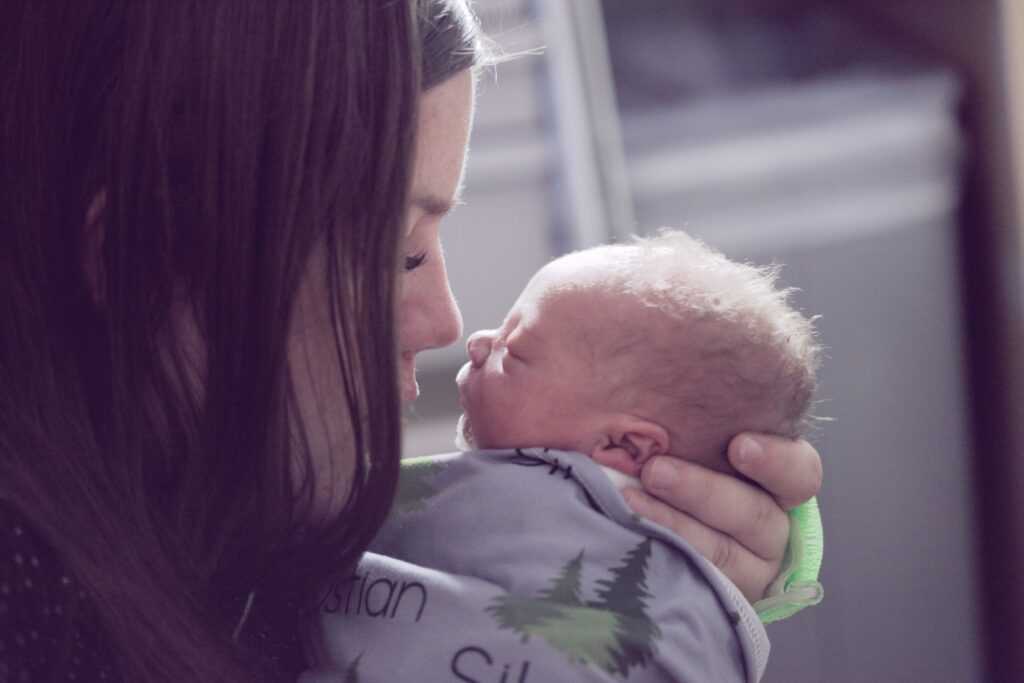Welcoming a new baby is one of life’s most incredible experiences, but let’s keep it practical. Becoming a mother is a wholehearted and life-changing journey.
Healthline states that the postpartum phase covers the initial six weeks following childbirth. While it’s a wonderful time, it also brings a lot of changes and healing for mothers. In these weeks, you will have the chance to connect with your baby. You also need to go the extra mile with self-care.
As a new mom, you’re navigating sleepless nights, recovering from childbirth, and learning how to care for your little one. It’s a rollercoaster ride filled with joy, exhaustion, and a sprinkle of feeling overwhelmed.
With some support and a few straightforward strategies, you can make your postpartum experience smoother. Embrace this new chapter while taking care of both yourself and your baby.
Understand the Hurdles
The postpartum phase can be full of emotional turmoil and bring some setbacks. New moms often struggle with several challenges. The first one is adapting to a new routine, but that is just the beginning.
According to the Mayo Clinic, the arrival of a baby can trigger a whole range of intense feelings. These may include a mix of pure joy, excitement, fear, and anxiety. Moreover, it can also lead to something unexpected, like depression. Usually, these feelings start within the first 2 to 3 days after giving birth and can last up to two weeks.
Breastfeeding can introduce its hurdles, from latching problems to discomfort. The physical aftermath of childbirth, like perineal pain, bleeding, and changes in your body, can feel overwhelming. Fluctuating hormones is another challenge. It can lead to mood swings, anxiety, or even postpartum depression, making emotional well-being a concern.
It is also common to feel isolated or lonely, as caring for a newborn can limit social interactions. Understanding these challenges is the first step toward finding the support and solutions you need.
Prioritize Rest and Sleep
Getting enough rest as a new mom might feel like an impossible dream, but it is crucial for your recovery. Late-night feedings and diaper changes can leave you feeling exhausted. Make it a point to get a nap whenever your baby sleeps, even if it’s just for 20 minutes.
Catching up on sleep is never easy for new moms, but little things can be helpful. Take help from your partner, family, or friends to assist with chores or baby care so you can grab some much-needed sleep. Creating a calm and cozy sleep environment for you and your baby can make a difference.
Prioritizing your rest isn’t selfish. It is a wise way to recharge, lift your spirits, and ensure you have the energy to care for your little one.
Seek Medical Help
Seeking medical assistance during the postpartum phase is vital for your recovery and peace of mind. If you notice anything unusual or want solace, consult your healthcare provider.
Many postpartum complications can be managed if diagnosed early. You must connect with your provider within three weeks after giving birth. Besides ongoing care, a thorough checkup of 12 weeks is recommended. However, it may not be possible to get appointments from a specialist frequently.
A family nurse practitioner (FNP) can fill the gap. They can offer physical care and emotional support, monitor your recovery, and help you set realistic expectations for healing. Fortunately, many nursing professionals are entering this field. The availability of family nurse practitioner online masters programs makes it possible.
Cleveland State University recommends building advanced practice skills necessary for patients caring in their tough times. FNPs are capable of that and much more. As a mom, your well-being is what truly counts. Lean on professionals for help with childcare so you can prioritize your health.
Join a Support Group
Joining a support group can transform the experience for new moms as they navigate the ups and downs of postpartum life. Motherhood is probably one of the most challenging roles anyone can take on. Unfortunately, many moms do not have a safe environment to discuss their challenges, victories, questions, and concerns with other mothers.
According to Calm, new moms can get mental health benefits by joining support groups. That is because they feel less lonely because there are people around who get it. Whether you find a local group at your community center or join an online forum, sharing your journey and listening to others can make you feel integrated.
These groups often provide practical guidance, encouragement, and even friendships that can last well beyond the postpartum phase. Knowing someone else who understands can take a load off your mind. It’s all about creating your support network because motherhood is a team effort.
Communicate Your Needs to Your Partner
Talking about your needs with your partner during the postpartum period is crucial, Yet it is something that many new moms tend to forget.
The National Institutes of Health believes that postpartum depression (PPD) impacts not just the mental and physical well-being of new mothers. It can also influence the growth and development of their newborns. Partners closely involved with new mothers provide emotional support with effective communication.
Your partner genuinely wants to help, but they might not always know what you need unless you let them know. Being open and honest can make a difference. You can ask them for time to catch some sleep, seek help with the baby, or just demand emotional support,
Aim for peaceful, sincere conversations to discuss feelings and what could make your day easier. You’re a team, and sharing responsibilities can bring you closer. When your partner knows what you need, they come forth with assurance. This makes the whole postpartum experience a little smoother for both of you.
FAQs
What is the hardest week postpartum?
The hardest week for new moms is usually the first one after giving birth. They experience a lot of physical challenges, including vaginal soreness, bleeding, and afterpains. At the same time, they struggle with emotional highs and lows from hormonal changes and exhaustion. It is a challenging blend of healing and adjusting to life with a newborn.
What should I avoid during the postpartum period?
During the postpartum phase, it is crucial to avoid strenuous activities, heavy lifting, and sexual relations. You must do it for at least 6 to 8 weeks to allow your body to recover. Avoid using tampons or menstrual cups, as they can increase the risk of infection. Keep an eye on your diet by limiting unhealthy foods, caffeine, and alcohol. Also, make sure you are not skipping meals.
How long does the uterus take to heal after birth?
After giving birth, your uterus usually takes around six weeks to heal and return to its pre-pregnancy size. This process, known as uterine involution, begins right after delivery and often comes with some cramping and vaginal discharge. Breastfeeding mothers might find that healing happens quicker due to the hormone oxytocin.
Going through the postpartum phase can feel like a lot, but remember, you are not alone. It is okay to take things one day at a time. Effective tactics can change the game. Your body and mind need gentle care as you adjust to this new chapter. Trust yourself and celebrate the little victories along the way. Patience and support enable you to survive and flourish as a new mom.


 Deborah Sextoneer brought her passion for community building and user engagement to Dazzling Holly Moms, playing a vital part in the platform's development. With her keen understanding of the challenges mothers face, Deborah ensured that the content resonates with moms and addresses their diverse needs. Her efforts in creating interactive features and fostering a supportive community have made Dazzling Holly Moms a go-to platform for mothers looking for practical advice and a sense of belonging. Deborah’s contributions have been essential to the project's ongoing success.
Deborah Sextoneer brought her passion for community building and user engagement to Dazzling Holly Moms, playing a vital part in the platform's development. With her keen understanding of the challenges mothers face, Deborah ensured that the content resonates with moms and addresses their diverse needs. Her efforts in creating interactive features and fostering a supportive community have made Dazzling Holly Moms a go-to platform for mothers looking for practical advice and a sense of belonging. Deborah’s contributions have been essential to the project's ongoing success.